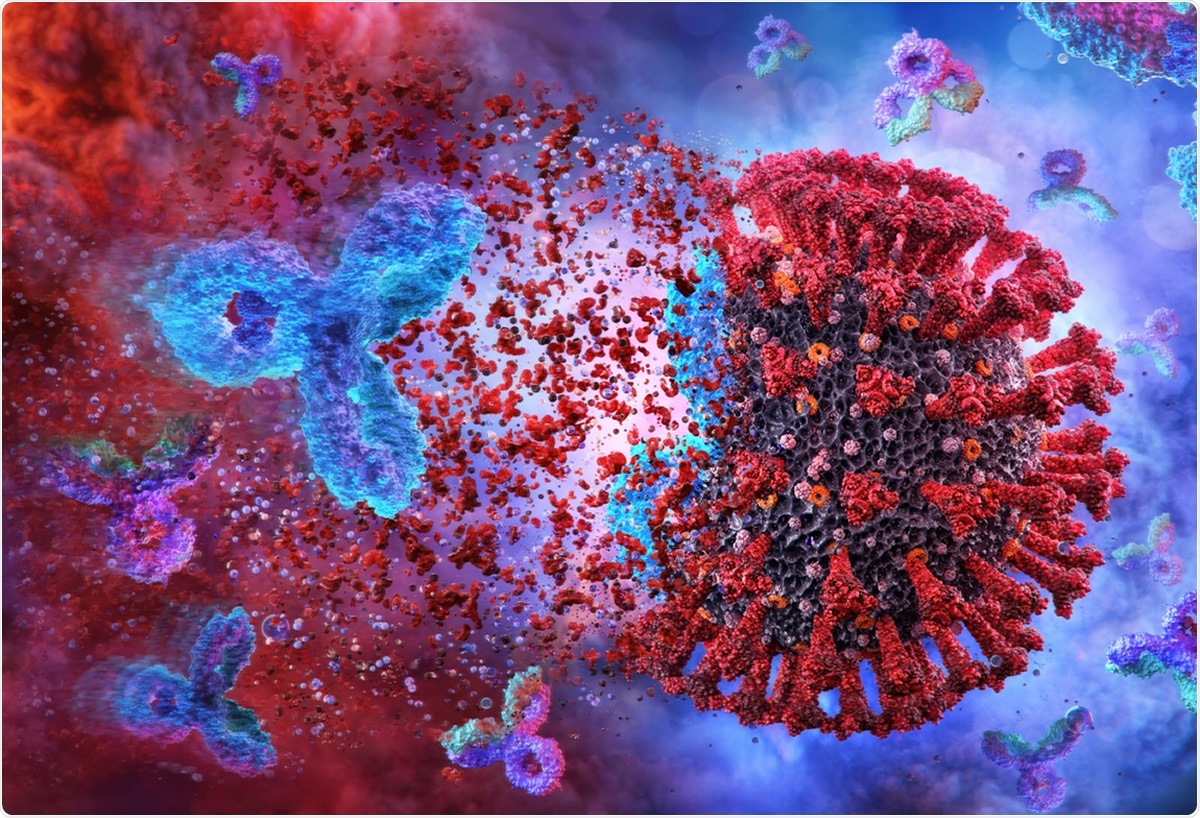Patients with hematological malignancy (PHM), also infected with COVID-19, were investigated for SARS-CoV-2 antibody responses while undergoing systemic anti-cancer therapy. While no obvious correlation is found between the serological results and the hematological diagnosis and the treatment, the immune response is similar to the severity of COVID-19 infection observed in the general population.
According to WHO reports, the current COVID-19 (coronavirus disease 2019) pandemic has caused more than 35 million COVID-19 positive cases, with over 1 million deaths. COVID-19 is caused by SARS-CoV-2 (severe acute respiratory syndrome coronavirus 2), a novel coronavirus strain. It is essential to understand the immune response caused by SARS-CoV-2 in patients to develop strategies for effective preventive measures, successful therapies, and to increase the recovery rate. Immune responses may vary significantly, as observed in the presence of comorbidities.
Underlying diseases, like cancer, are a high risk-factor during COVID-19 infection. Cancer patients may present severe complications due to their malignancy, specific immune responses, and therapy-related issues. In a new study published on the medRxiv*, Jenny O’Nions et al. investigate SARS-CoV-2 antibody responses in a cohort of patients with both aggressive hematological malignancies and COVID-19, at University College London Hospital.
Patients with hematological malignancy (PHM) constitute only 10% of all cancers; however, their therapeutic management in the face of a pandemic becomes complex. PHM are reported to have severe outcomes during COVID-19 infection. High-mortality is also observed, leading to a need for changes in standard therapies. Most of the prevalence, clinical course, and outcomes of COVID-19 in PHM is not yet fully established.
Several recommendations have been made to the standard therapies for PHM to address the COVID-19 infection and mitigate it. Towards this effort, the study of immune responses towards SARS-CoV-2 in PHM is underway. However, the seroprevalence and the magnitude, kinetics, and functionality of the antibody response in PHM are not known. In this study, serum from 10 patients with aggressive hematological malignancies and COVID-19 was collected between April and May 2020 and tested for antibodies against the viral antigens.
All patients received SACT (systemic anti-cancer therapy) within 28 days of developing COVID-19 infection. The COVID-19 symptoms in these patients were mild to severe, with 2 of them requiring ITU (intensive therapy unit) and mechanical ventilation. Post-treatment, all patients were discharged from the hospital within ~22.5 days of illness. All the patients tested positive for SARS-CoV-2 RNA by PCR (polymerase chain reaction) method, except for one patient.
Serum samples were screened for anti-SARS-CoV-2 antibodies - against the external Spike (S) protein antigen and the Nucleoprotein (N) antigen. Two patients exhibited serum negativity. Total serum IgG was also normal in each case, confirming that any reduction or absence of SARS-CoV-2 IgG was not due to hypogammaglobulinemia (indicating an impaired immune system). The authors demonstrate that PHM can generate antibodies to SARS-CoV-2 antigens, similar to other COVID-19 patients without hematological malignancy.
The authors also compared the temporal dynamics of SARS-CoV-2 antibody responses: seroconversions to both antigens (S and N) were similar to those reported in patients without hematological malignancies, with a slight delay.
Further, to test the functional activity of SARS-CoV-2-specific antibodies - to inhibit SARS-CoV-2 infection and to neutralize the virus - the researchers assessed the neutralization activity (in vitro) of sera from the patients. As expected, the seronegative patients showed no neutralization activity; however, in six of the eight seropositive patient samples, the viral infection is inhibited. The two patients who showed no neutralization activity had very low anti-S1 IgG levels, almost in unquantifiable levels. S1 is the domain of the spike antigenic protein of SARS-CoV-2. It is interesting to note, however, that two other patients, despite low anti-S1 IgG levels, neutralized the infection successfully. The researches explain the cause of this unique observation in patients: (i) they produced a relatively high proportion of S1- specific IgG with neutralizing capacity, (ii) they produced low titers of particularly potent antiS1 IgG, (iii) they produced neutralizing antibodies directed against other viral epitopes, or (iv) they produced non-IgG neutralizing antibodies.
Also, the authors note that the patients with the strongest anti-S1 IgG and neutralizing responses were generally the most severely ill. This is not absolute, however, they point out. In this study, the authors report the first longitudinal study of serological responses to SARS-CoV-2 in adult patients undergoing SACT for aggressive haematological malignancies. The magnitude of the observed antibody response generally correlates with the severity of COVID-19, as is reported in the general population. These observations needed to be studied in larger cohorts of patients to draw conclusions and modify the approach to such cases.
They conclude that there is no apparent correlation between serological response and hematological diagnosis, type, or intensity of SACT. The time for seroconversion however, is consistently longer in PHM. This study highlights the complexity in establishing causes of the variable responses observed and the need to understand better the quality of antibody responses in PHM with different diagnoses and therapies.
*Important Notice
medRxiv publishes preliminary scientific reports that are not peer-reviewed and, therefore, should not be regarded as conclusive, guide clinical practice/health-related behavior, or treated as established information.
References:
- SARS-CoV-2 antibody responses in patients with aggressive haematological malignancies, Jenny O'Nions, Luke Muir, Jiexin Zheng, Chloe Rees-Spear, Annachiara Rosa, Christopher Earl, Peter Cherepanov, Rajeev Gupta, Asim Khwaja, Clare Jolly, Laura E McCoy, medRxiv 2020.09.29.20202846; doi: https://doi.org/10.1101/2020.09.29.20202846
https://news.google.com/__i/rss/rd/articles/CBMilQFodHRwczovL3d3dy5uZXdzLW1lZGljYWwubmV0L25ld3MvMjAyMDEwMDQvSW52ZXN0aWdhdGlvbi1vZi1TQVJTLUNvVi0yLWFudGlib2R5LXJlc3BvbnNlcy1pbi1wYXRpZW50cy13aXRoLWFnZ3Jlc3NpdmUtaGVtYXRvbG9naWNhbC1tYWxpZ25hbmNpZXMuYXNweNIBmQFodHRwczovL3d3dy5uZXdzLW1lZGljYWwubmV0L2FtcC9uZXdzLzIwMjAxMDA0L0ludmVzdGlnYXRpb24tb2YtU0FSUy1Db1YtMi1hbnRpYm9keS1yZXNwb25zZXMtaW4tcGF0aWVudHMtd2l0aC1hZ2dyZXNzaXZlLWhlbWF0b2xvZ2ljYWwtbWFsaWduYW5jaWVzLmFzcHg?oc=5
2020-10-05 03:43:00Z
CAIiEEDFNw_Ss2EUnpRBSCuZl0YqMwgEKioIACIQZdRflS9INK7zM5FkBi3R3CoUCAoiEGXUX5UvSDSu8zORZAYt0dwww8TIBg
Bagikan Berita Ini















0 Response to "Investigation of SARS-CoV-2 antibody responses in patients with aggressive hematological malignancies - News-Medical.Net"
Post a Comment